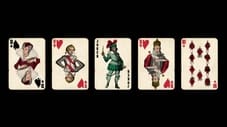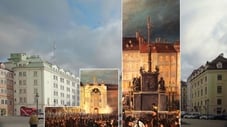Pascal Goblot — 감독
에피소드 5
24 September 622: The Hegira
Muhammed’s first year in Medina, in year 622 of the Christian era, marks the beginning of the Muslim era and the birth of a new religion, civilisation, empire and calendar. The Hegira, Muhammed’s visit to the Mecca in Medina, also marks a major change : from then on, believers will pray in the direction of this new sacred place and no longer in the direction of Jerusalem.
더 읽기24 August 79: Destruction of Pompeii
The catastrophe led to a vast interdisciplinary project : volcanology reveals the force of the eruption, archeology and the study of texts uncover new objects of daily life found in the remains of buildings and roadways, including graffiti on the walls… The eruption of the Vesuvio froze the town of Pompei forever. But can one be sure that all of these discoveries date back to the eruption ?
더 읽기1347: The Beginning of the Black Death
Did the first outbreaks occur in China or in the Caspian Sea ? Experts still argue. But how did the plague actually spread ? After many controversies, it seems that the rat flea was the major carrier of this disease.
더 읽기May 14 1610 - The Assassination of King Henry IV of France
The assassination of Henri IV, peacemaking and reformist king, is as much a canonical scene in the History of France as it is a decisive break in political modernity. And first of all because it is a newsworthy event with an almost global dimension. We know that its spread to the “four corners of the world” is an indication of an open, if not connected, world.
더 읽기The Revolutions of 1848
The expression “Spring of Nations” inspired the more recent “Arab Spring” of 2011. Also known as the Springtime of the Peoples, the period was characterized by a cascade of national claims. However, these movements had difficulties in coordinating, for the simple reason that these movements first of all stemmed from a desire to draw definite borders, rather than to open them.
더 읽기




